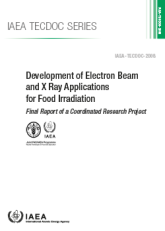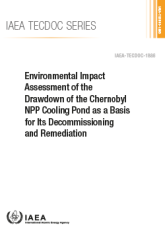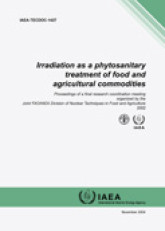Description
Radionuclides of both natural and human made origin exist throughout the environment. These radionuclides can be transferred to plants and animals that are consumed by humans, thereby resulting in exposure to ionizing radiation and an internal radiation dose. This Safety Report provides information on the observed distributions of concentrations of natural radionuclides in various food products, on the use of ‘total diet’ and other studies to assess ingestion doses, and on radionuclide concentrations in natural mineral waters. Different dose assessment methodologies are presented and the advantages and disadvantages of each is discussed, along with approaches used for managing non-radioactive contaminants in food. This publication is jointly sponsored by the IAEA, the Food and Agriculture Organization of the United Nations and the World Health Organization. It is intended to support Member States in the assessment and management of radionuclides in food, and the alignment of national policies with Requirement 51 of IAEA Safety Standards Series No. GSR Part 3, related to radionuclides in food and drinking water.
More Information on reusing IAEA copyright material.
Keywords
Exposure, Radionuclides in Food, Nuclear Radiological Emergency, Part 1, Technical Matters, Ionizing Radiation, Internal Radiation Dose, Distributions of Concentrations, Natural Radionuclides, Food Products, Natural Mineral Waters, Dose Assessment Methodologies, Advantages and Disadvantages, Non-Radioactive Contaminants in Food, FAO, IAEA, WHO, Radioisotopes, Radioactive Substances, Radioactive Contamination of Food, Natural and Human-Made Radionuclides, Outcomes, National and International Reviews, Estimation of Dietary Intake, Food Consumption Data, Dietary Sampling Methods, Analysis of Dietary Exposure Studies, Dietary Dose Studies, Aquaculture, Wild Foods, Statistical Analysis, Measurement Data, Data Collection, Potassium-40, Uranium, Thorium, Knowledge Gaps, Food Monitoring Data, National Dietary Studies, Comprehensive Dataset, Food Subcategory, Key Technical Findings, National Programmes, Ingestion Doses, Total Diet, Drinking Water, Member States
Related publications

2022

2022

2019

2019

2016

2015

2015

2011

2004

1979













